
The exotic pet trade endangers exotic bird species like macaws, parrots, and cockatoos. While many people mistake these birds for domesticated pets, they are wild animals with sophisticated intelligence and social behavior that warrant rehabilitation and dedicated care.
In this post, we'll delve into the exotic bird rescue world, emphasizing their social behavior, intelligence, special care, issues with natural habitat conservation, the effects of the illicit bird trade, disease transmission, and the correlation between wildlife and human health.
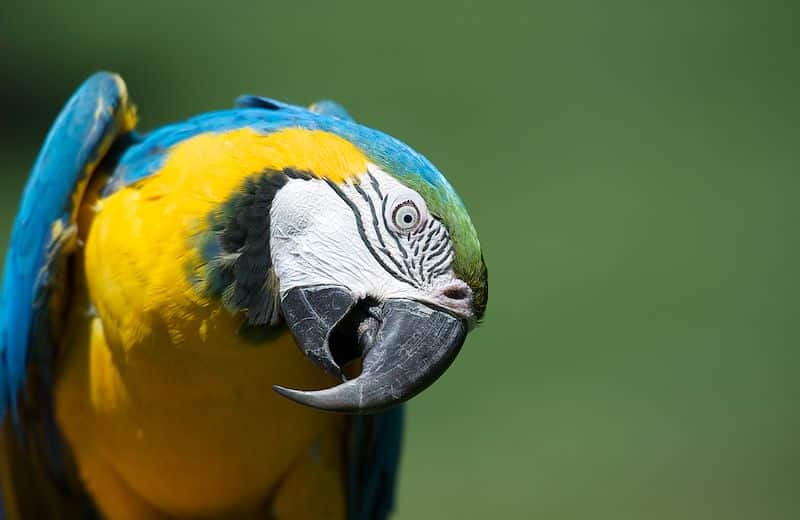
Exotic birds showcase a variety of cognitive abilities, such as communication, problem-solving, and tool use.
Soho from Lions Tigers & Bears is a prime example of a highly intelligent exotic bird. The blue and gold macaw was rescued in 2008 and he loves greeting the staff and volunteers with a big "HELLO." He also says "GOODBYE" as people leave the sanctuary in the evenings.
Parrots are known for their flexible and complex problem-solving abilities, such as using tools to open food containers and tackling string-pulling tasks to obtain rewards. Similarly, parrots have unique vocal abilities and use a special organ known as the syrinx to generate various sounds that enhance communication.
Besides, parrots live in habitats that demand behavioral flexibility, and most species have successfully invaded their non-native spaces, signaling the need for complex cognition.
However, training parrots and other wild animals often involves significant abuse and harmful methods that can cause a great deal of distress and harm. It is important to recognize the ethical implications of such training and prioritize the well-being of wild animals in all circumstances.
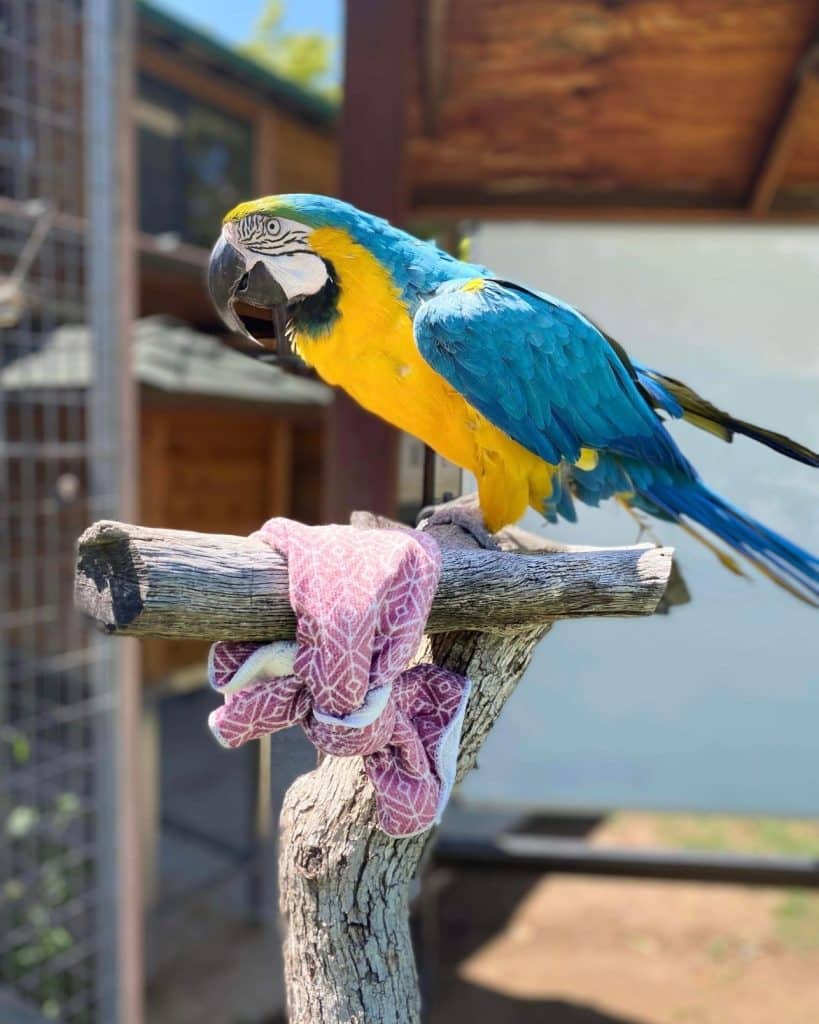
Rescuing wild birds from the dreaded pet trade and trafficking requires specialized care and rehabilitation. The birds have exceptional instincts and needs that should be nurtured for better health.
The blue and gold macaws have a lifespan of at least 70 years, meaning their owners should care for them for a lifetime. However, the amazing birds' long lifespan is one reason their owners eventually relinquish or abandon them.
At Lions Tigers & Bears, our macaw Soho receives a proper diet of fresh fruits and raw nuts to address his daily nutritional needs. In the spacious enclosures at the facility, he can cackle loudly, bob to some tunes, exercise his powerful wings, and climb around numerous structures.
Enrichment tasks, such as strategically placed puzzle feeders and toys, help stimulate his intelligent mind and prevent boredom. The specialized care boosts Soho's physical health, allowing him to reveal his instincts and simply enjoy being a bird.
Before reaching sanctuaries, these birds go through a dangerous journey. Wild bird trafficking is a multi-million industry, stemming from a high demand for exotic pets.
Confiscated birds from the pet trade likely underwent a harrowing ordeal. Inadequate food, constant transport, and crowded cages can negatively impact these birds.
Poachers use indiscriminate and cruel methods to capture these birds, often bruising or even killing them in the process. The lucky birds who survive the ordeal experience cramped transport and a water and food shortage, which can result in dehydration, sickness, or even death.
In addition to reducing wild species populations, this brutal trade disrupts various local ecosystems.
How does this happen? Wild birds are instrumental in seed dispersal; they carry seeds in their crops and disperse them across large forest surfaces, regenerating and maintaining the crucial balance of plant life. Besides, these birds transfer pollen across flowers to ensure the reproduction of numerous plant species.
Thus, removing the birds from the wild disrupts the delicate ecosystem, pushing the already threatened and endangered species even closer to extinction. Examples of endangered wild birds include the black eagle from South Africa and Australia's rainbow lorikeet.
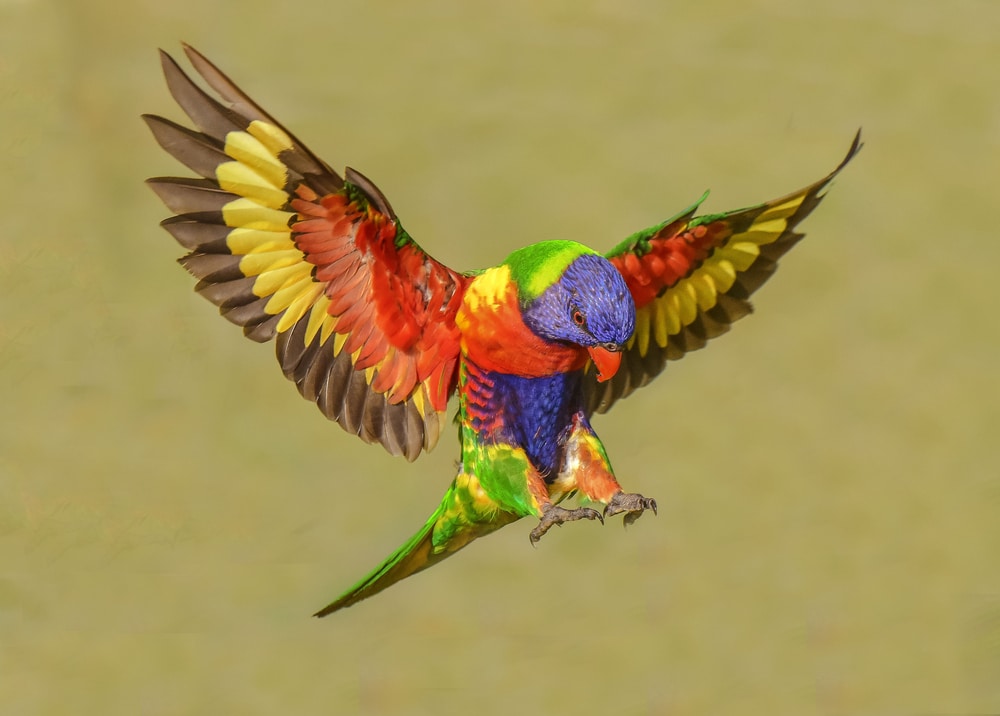
The illicit wild bird trade poses another danger: zoonotic diseases. The ailments can jump from wild animals to humans, increasing the risk of pandemics.For example, parrots can carry a bacteria known as Chlamydia psittaci, which triggers flu-like symptoms among humans.
Although healthy people often experience mild symptoms, young children, older people, and individuals with weak immune systems can develop serious, life-threatening complications.
Embracing the One Health approach is the first step toward controlling zoonotic diseases. This approach entails collaborating between medical and veterinary scientists, public health officials, and policymakers to prevent the spread of these diseases.
It's difficult to truly "domesticate" an exotic bird. Cats and dogs are examples of the most popular pets because they have been bred alongside human beings for ages. However, exotic birds have evolved purely to survive in the wild.
Their beaks are adapted to extract flower nectar or crack nuts open, their strong wings let them navigate long distances searching for nesting spots and food, and their feathers offer camouflage from impending predators.
While permanently injured rescue birds or those accustomed to human space may not return to the wild, most rescue facilities will attempt to create an environment that closely resembles the natural world as possible. For example, they may build enclosed aviaries containing shrubs, trees, and climbing structures to offer adequate space for exploration and flight.
The battle against the illegal wild bird trade requires concerted efforts. You can participate in several ways, including:
Bird rescue sanctuaries rely on financial support to offer essential care to rescued birds. Donating to these non-profit organizations will help them provide specialized diets and all of the necessary medical care to nurture these precious animals.
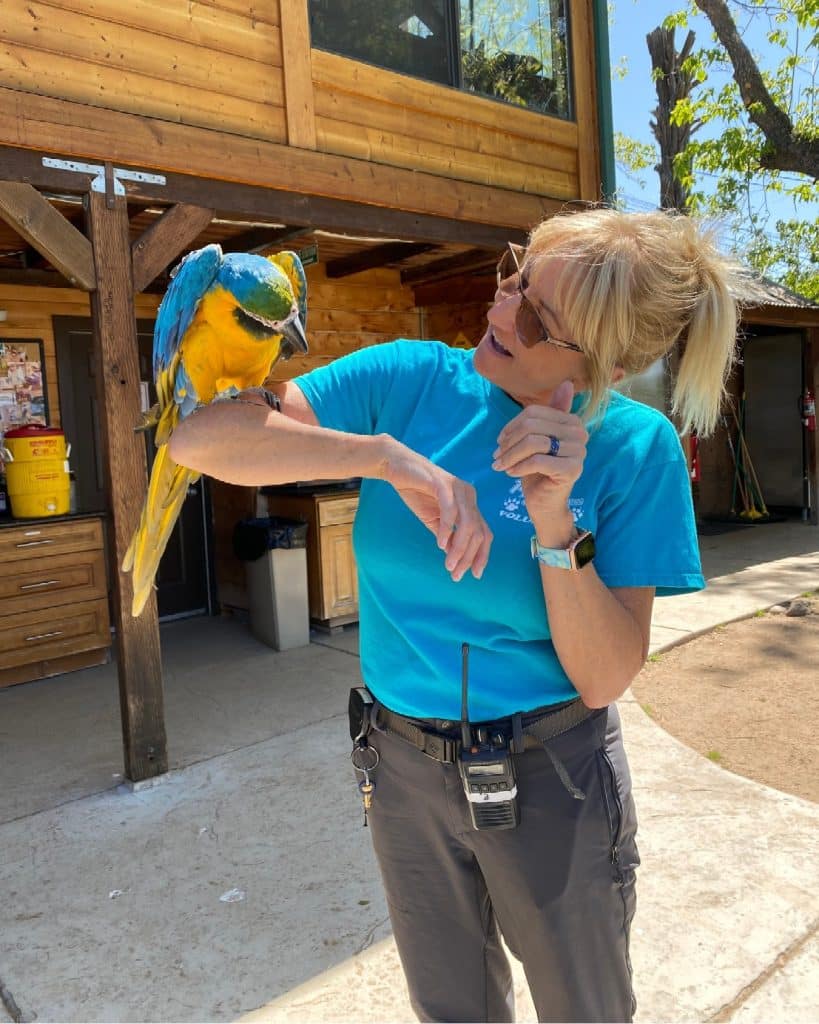
The support also helps these organizations operate responsibly, keeping the birds' welfare in mind. Lions Tigers & Bears is an example of such organizations. LTB engages in bird rescue in San Diego, and across the country. But you can also research similar sanctuaries that help rescue animals in your community.
Not all nonprofit organizations uphold the same standards, so it's important to research and choose those that have been accredited by reputable governing bodies such as the Global Federation of Animal Sanctuaries and The American Sanctuary Association. This ensures that the organization follows best practices in the care and protection of animals.
Educate yourself and others regarding the negative impact of the exotic illegal trade of wild animals. Share useful resources related to these birds' plight and the risks of pet trade and corrupt breeding facilities with your friends and families on the various social networks. One example of such a great, shareable resource is The Red List of Threatened Species.
Enlightening your family and friends about ethical pet ownership and the significance of leaving wild birds in the wild can help change public perception, one person at a time.
Never source or adopt a wild pet. Owning a wild animal is never a good idea. Instead, consider sponsoring one from an accredited rescue organization. This way, you're providing support to a bird in need and contributing to the fight against the exotic pet trade.
Lions Tigers & Bears has a sponsorship program that allows you to sponsor our animals and make a meaningful difference in their lives.
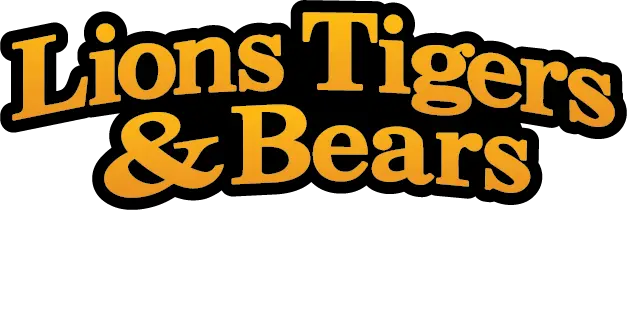
Ph: 619.659.8078
Fx: 619.659.8841
[email protected]
24402 Martin Way, Alpine, CA 91901